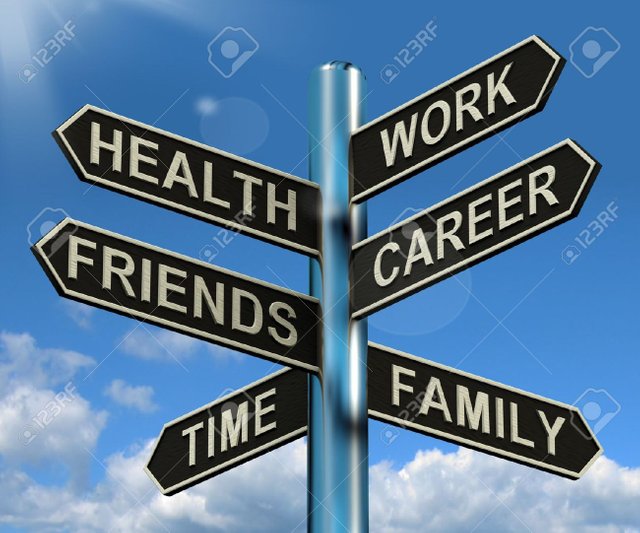Three main phases can be identified in the history of lifestyles studies
Lifestyles and social position
Earlier studies on lifestyles focus on the analysis of social structure and of the individuals’ relative positions inside it. Thorstein Veblen, with his ‘emulation’ concept, opens this perspective by asserting that people adopt specific ‘schemes of life’, and in particular specific patterns of ‘conspicuous consumption’, depending on a desire for distinction from social strata they identify as inferior and a desire for emulation of the ones identified as superior. Max Weber intends lifestyles as distinctive elements of status groups strictly connected with a dialectic of recognition of prestige: the lifestyle is the most visible manifestation of social differentiation, even within the same social class, and in particular it shows the prestige which the individuals believe they enjoy or to which they aspire. Georg Simmel carries out formal analysis of lifestyles, at the heart of which can be found processes of individualisation, identification, differentiation, and recognition, understood both as generating processes of, and effects generated by, lifestyles, operating “vertically” as well as “horizontally”. Finally, Pierre Bourdieu renews this approach within a more complex model in which lifestyles, made up mainly of social practices and closely tied to individual tastes, represent the basic point of intersection between the structure of the field and processes connected with the habitus.

Lifestyles as styles of thought
The approach interpreting lifestyles as principally styles of thought has its roots in the soil of psychological analysis. Initially, starting with Alfred Adler, a lifestyle was understood as a style of personality, in the sense that the framework of guiding values and principles which individuals develop in the first years of life end up defining a system of judgement which informs their actions throughout their lives. Later, particularly in Milton Rokeach’s work, Arnold Mitchell’s VALS research and Lynn Kahle’s LOV research, lifestyles’ analysis developed as profiles of values, reaching the hypothesis that it is possible to identify various models of scales of values organized hierarchically, to which different population sectors correspond. Then with Daniel Yankelovich and William Wells we move on to the so-called AIO approach in which attitudes, interests and opinions are considered as fundamental lifestyles’ components, being analysed from both synchronic and diachronic points of view and interpreted on the basis of socio-cultural trends in a given social context (as, for instance, in Bernard Cathelat’s work). Finally, a further development leads to the so-called profiles-and-trends approach, at the core of which is an analysis of the relations between mental and behavioural variables, bearing in mind that socio-cultural trends influence both the diffusion of various lifestyles within a population and the emerging of different modalities of interaction between thought and action.
Lifestyles as styles of action
Analysis of lifestyles as action profiles is characterized by the fact that it no longer considers the action level as a simple derivative of lifestyles, or at least as their collateral component, but rather as a constitutive element. In the beginning, this perspective focussed mainly on consumer behaviour, seeing products acquired as objects expressing on the material plane individuals’ self-image and how they view their position in society. Subsequently, the perspective broadened to focus more generally on the level of daily life, concentrating – as in authors such as Joffre Dumazedier and Anthony Giddens – on the use of time, especially loisirs, and trying to study the interaction between the active dimension of choice and the dimension of routine and structuration which characterize that level of action. Finally, some authors, for instance Richard Jenkins and A. J. Veal, suggested an approach to lifestyles in which it is not everyday actions which make up the plane of analysis but those which the actors who adopt them consider particularly meaningful and distinctive.
Health
A healthy or unhealthy lifestyle will most likely be transmitted across generations. According to the study done by Case et al. (2002), when a 0-3 year old child has a mother who practices a healthy lifestyle, this child will be 27% more likely to become healthy and adopt the same lifestyle.[12] For instance, high income parents are more likely to eat organic food, have time to exercise, and provide the best living condition to their children. On the other hand, low income parents are more likely to participate in unhealthy activities such as smoking to help them release poverty-related stress and depression.[13] Parents are the first teacher for every child. Everything that parents do will be very likely transferred to their children through the learning process.
Adults may be drawn together by mutual interest that results in a lifestyle. For example, William Dufty described how pursuing a sugar-free diet led to such associations:
I have come to know hundreds of young people who have found that illness or bingeing on drugs and sugar became the doorway to health. Once they reestablished their own health, we had in common our interest in food. If one can use that overworked word lifestyle, we shared a sugarfree lifestyle. I kept in touch with many of them in campuses and communes, through their travels here and abroad and everywhere. One day you meet them in Boston. The next week you run into them in Southern California.

osthir management.
Downvoting a post can decrease pending rewards and make it less visible. Common reasons:
Submit
Hi! I am a robot. I just upvoted you! I found similar content that readers might be interested in:
https://en.wikipedia.org/wiki/Lifestyle_%28sociology%29
Downvoting a post can decrease pending rewards and make it less visible. Common reasons:
Submit
Congratulations @bmasikur! You have completed some achievement on Steemit and have been rewarded with new badge(s) :
Click on any badge to view your own Board of Honor on SteemitBoard.
For more information about SteemitBoard, click here
If you no longer want to receive notifications, reply to this comment with the word
STOPDownvoting a post can decrease pending rewards and make it less visible. Common reasons:
Submit
Sundor gocano post.
Downvoting a post can decrease pending rewards and make it less visible. Common reasons:
Submit
nice content and great
Downvoting a post can decrease pending rewards and make it less visible. Common reasons:
Submit
good post.
Downvoting a post can decrease pending rewards and make it less visible. Common reasons:
Submit
helpful
Downvoting a post can decrease pending rewards and make it less visible. Common reasons:
Submit
vai cheetah.so be careful
Downvoting a post can decrease pending rewards and make it less visible. Common reasons:
Submit
nice content bro
Downvoting a post can decrease pending rewards and make it less visible. Common reasons:
Submit
Congratulations @bmasikur! You have completed some achievement on Steemit and have been rewarded with new badge(s) :
Click on any badge to view your own Board of Honor on SteemitBoard.
For more information about SteemitBoard, click here
If you no longer want to receive notifications, reply to this comment with the word
STOPDownvoting a post can decrease pending rewards and make it less visible. Common reasons:
Submit
Good topic.
Downvoting a post can decrease pending rewards and make it less visible. Common reasons:
Submit
nice
Downvoting a post can decrease pending rewards and make it less visible. Common reasons:
Submit
nice
Downvoting a post can decrease pending rewards and make it less visible. Common reasons:
Submit
This seems to be not clear.
Downvoting a post can decrease pending rewards and make it less visible. Common reasons:
Submit
thanks bro
Downvoting a post can decrease pending rewards and make it less visible. Common reasons:
Submit
Follow me all....😉😉
Downvoting a post can decrease pending rewards and make it less visible. Common reasons:
Submit
Congratulations @bmasikur! You have received a personal award!
Click on the badge to view your Board of Honor.
Do not miss the last post from @steemitboard:
Downvoting a post can decrease pending rewards and make it less visible. Common reasons:
Submit
Congratulations @bmasikur! You received a personal award!
You can view your badges on your Steem Board and compare to others on the Steem Ranking
Do not miss the last post from @steemitboard:
Vote for @Steemitboard as a witness to get one more award and increased upvotes!
Downvoting a post can decrease pending rewards and make it less visible. Common reasons:
Submit